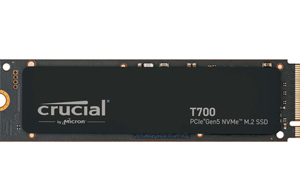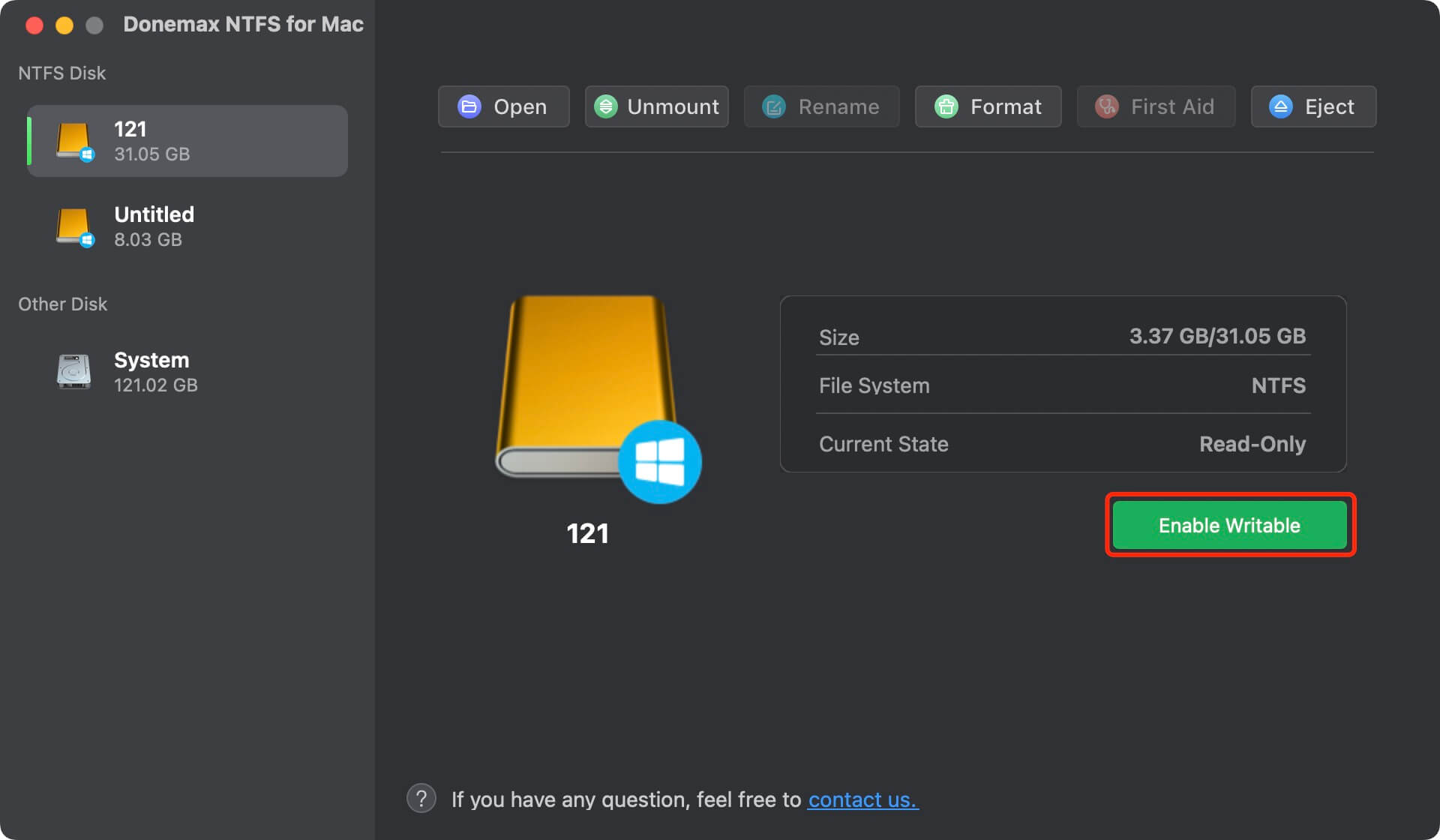PAGE CONTENT:
When you install a Crucial external SSD on your reliable Mac, you enter a realm of lightning-fast data transfer and frictionless storage. When you're about to plunge into your most recent project or share some unforgettable images, your Crucial SSD decides it's time to be read-only. Feelings of frustration begin to set in.

Unlock the full potential of your storage powerhouse by troubleshooting and fixing that annoying read-only issue. This article has you covered. From making sure the cables are in place to doing some basic Terminal magic, we'll show you the ropes. Prepare for some Mac read/write adventures with a restored Crucial external SSD!
Why does Crucial SSD read only on Mac?
For various reasons, you can only access data stored on an external hard drive on a Mac.
Formatting Problems:
Formatting mistakes can happen on any hard disk and cause many issues. As a side effect, your external hard drive will be locked into read-only mode. Formatting mistakes restrict any writing operations on your drive, which is why you see a notification saying your external device is mounted for read-only.
Permission Settings:
The permissions settings of your operating system also apply to external hard drives, just as they do to your local hard drive. The device's folders and files are all impacted by these permissions. You may have trouble adjusting the permissions on another Mac running a different operating system if you try to access the drive on that computer. As a result, you will not be able to access your external hard drive normally on this Mac and will not be granted permission to write to it.
Method to fix the Crucial read-only issue on Mac
Step 1: Check the Write Protection Switch (if applicable):
A physical write protection switch may be located on certain models' external solid-state drives (SSDs), particularly Crucial ones. This little switch locks the drive in read-only mode to avoid accidental data overwrites. Verify the proper orientation of the write protection switch on your Crucial external SSD before proceeding with more involved troubleshooting steps. After unlocking the switch, you should toggle it to the locked position to test whether the problem still exists.
Step 2: Examine the USB Cable and Port:
Connectivity problems, such as a read-only issue, might arise from a loose or broken USB cord. Check the cord for signs, such as fraying, and cut it short if needed. Another thing to try is using a separate USB port on your Mac to attach the Crucial SSD. Switching to a different USB port could help you rule out the likelihood that a faulty port is to blame.
Step 3: Verify File System Compatibility:
There may be read-only problems if the Crucial SSD's file system is incompatible with the Mac OS X operating system. External solid-state drives (SSDs) may be preformatted using exFAT, FAT32, or NTFS, although Macs usually utilize APFS or HFS+. Verify that the file system of your Crucial SSD is compatible with your Mac by using Disk Utility. If necessary, reformat it to a different file system.
Step 4: Reset NVRAM and SMC:
The System Management Controller (SMC) and Non-Volatile Random-Access Memory (NVRAM) hold a variety of configuration and hardware-related settings. When problems arise with external devices, resetting NVRAM and SMC may fix them. Hold down the Option, Command, P, and R keys simultaneously while restarting your Mac to reset the NVRAM. Before you can reset SMC, turn off your Mac. Then, press and hold the power button, Shift, Control, and Option keys for 10 seconds. Then, release them.
Step 5: Check Disk Permissions:
Issues with read-only access could arise from improper disk permissions. The Crucial external SSD can have its disk permissions checked and fixed using Disk Utility. To access the SSD, launch Disk Utility, choose it on the left-hand panel, and then choose "First Aid." If permissions difficulties cause the read-only problem, this approach will fix them.
Step 6: Update macOS and Crucial SSD Firmware:
Incompatibilities may arise when using outdated software. Check the updates to ensure your Mac runs the most recent macOS version. You can also see whether your external SSD has any firmware upgrades by visiting Crucial's website. Updates to the firmware may fix any incompatibilities or defects causing the read-only issue.
If you have lost data from your Crucial external SSD, just run a data recovery app to scan the Crucial external SSD, get lost data back.

Recover Lost Data from Crucial SSD
Run data recovery software to scan the Crucial SSD, recover deleted, formatted and lost data.
Enable read-write for Crucial external SSD has been formatted to NTFS on Mac
NTFS is a Windows-based file system, it is not compatible with macOS. When a hard drive has been formatted to NTFS, the drive can be used on a Windows PC, but it will be read-only on a Mac.
If your Crucial external SSD has been formatted to NTFS, you can use it on your Mac without limitation by using a NTFS for Mac tool to add read-write support on Mac.
Step 1. Download and install Donemax NTFS for Mac tool on your Mac, connect the Crucial external SSD to your Mac.
Step 2. Open Donemax NTFS for Mac, select the Crucial external SSD, click on Enable Writable button. Then you can read-write NTFS Crucial external SSD on Mac.

Conclusion:
Suppose your Crucial external SSD is experiencing read-only problems while attached to a Mac. In that case, a method to your problem involves inspecting hardware components and applying software fixes.
If you follow the instructions in this article, you should be able to fix their Crucial SSD and get it working again for reading and writing. If you have already tried these alternatives and the problem is still unresolved, you should contact Crucial's customer care or Apple's support channels.
Related Articles
- Jul 07, 2023How to Use An NTFS Drive on Mac?
- Aug 28, 2023Fix Cannot Write Data to WD Elements on Mac | Fix WD Elements Read-only on Mac
- Dec 03, 2024How to Format a Seagate or WD External Hard Drive to NTFS on Mac?
- Dec 05, 2024SYSGeeker NTFS for Mac Review, How to Use It, Best Alternative
- Dec 06, 2024Best 5 Paragon NTFS for Mac Alternatives: Why Choose Them?
- Dec 02, 2024How to Format an SD Card to NTFS on Mac?

Coco Lin
Coco has been a writer and a chief programmer at Donemax software since 2018. Over 10 years of experience of writing troubleshooting articles in the software industry, she is passionate about programming and loves to providing solutions to Windows and Mac users. Also she enjoys music and palying tennis in her free time.

Gerhard Chou
In order to effectively solve the problems for our customers, every article and troubleshooting solution published on our website has been strictly tested and practiced. Our editors love researching and using computers and testing software, and are willing to help computer users with their problems